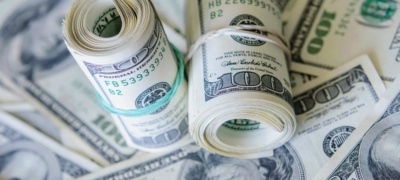A savings account is an account with a bank or other financial institution that pays interest on the money deposited. Check out the articles, columns, radio shows, blog posts and videos for more information on savings accounts.
News Flash: It’s Time to Save
America Saves Week runs this week. More than 1,000 organizations have teamed up to promote the goal of saving. Seems a bit ironic this year with the...
Federal Reserve Announces Consumer Help Office
If you have a problem with a bank or other financial institution you now have someone to call for help. The Federal Reserve just announced its consum...
Short-Term Savings Options
If you're looking to earn short-term interest on your saved cash, a short-term certificate of deposit might give you a decent return and won't tie up your cash for long. Another option is to find an online savings account that pays high interest rates. Some mutual companies' cash accounts are also offering high rates for your saved cash.
Protect Assets With Estate Planning Including Will
When you own a home with a partner who has children from another relationship you may be wondering how to protect your assets. While it's good to buy a home as joint tenants with rights of survivorship, a will can ensure that your property inheritance desires are met. Estate planning, including a will, can protect other assets as well.
Real Estate Minute: Debt And Freezing Bank Accounts
Real Estate Minute with Ilyce Glink Know Your Rights: Creditors can't freeze bank accounts with exempt funds
Paying A Visit To The Bank
My sons, Alex and Michael, have been saving money since they were born. Alex is a born saver. That is, he really gets that it's about the long-term an...
Organizing Your Personal Finance Life
If you're going to buy a house or refinance your existing loan this year, you should take the time to organize your finances now. Gathering your paperwork together will make it easy to apply for a loan later. Keeping your insurance policies, checking and savings accounts, retirement accounts, investments, tax returns and trust information organized will pay off when you really need the information.
Check Cashing Fees At Currency Exchanges
What can a currency exchange do for you that a bank can't? Many people use currency exchanges to cash checks, pay bills or obtain money orders. For people living in neighborhoods that don't have many financial institutions, currency exchanges offer easy access to various financial services. However, currency exchanges earn a profit by charging a fee for most of their services. As such they tend to be a more expensive option than other financial institutions. More importantly, there are no savings accounts at currency exchanges. You won't build up your personal net worth if you only frequent currency exchanges and never visit the bank.
Receive Social Security Via Direct Deposit
Getting your paycheck or Social Security check electronically through direct deposit has many benefits including safety. Hear the story of one senior who now receives her Social Security money electronically and really likes it. In addition, if all Social Security recipients received their cash directly into bank accounts it would save the federal government a lot of money in postage and printing expenses.
Saving With Multiple IRA Accounts
You are allowed to save for retirement with multiple kinds of retirement accounts. You can have your 401(k) and you can also open up a Roth IRA. It is also possible to have more than one of the same types of IRA account but in different investment firms. Keep your retirement accounts and don't dip into them for other things like a down payment on a home.

